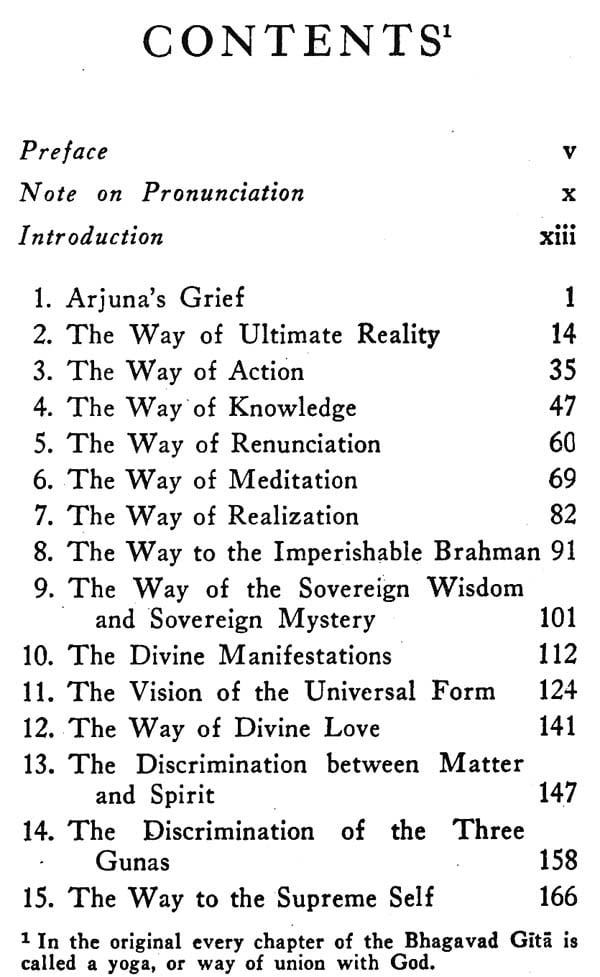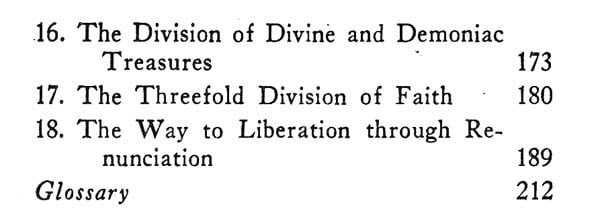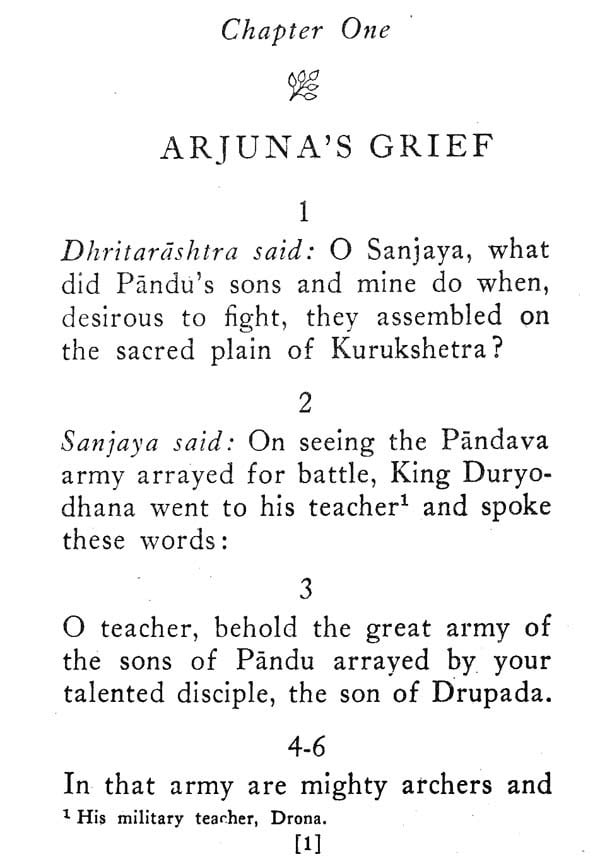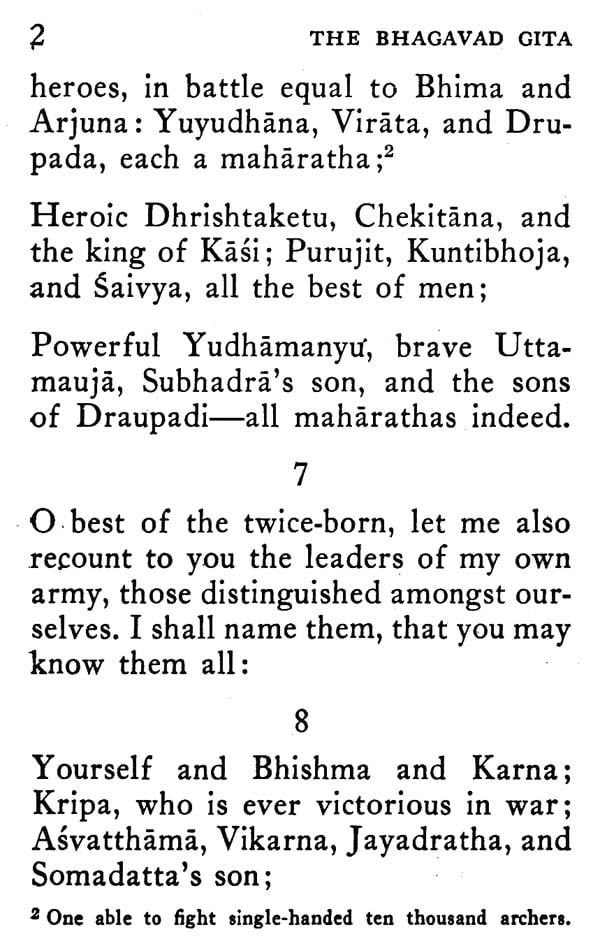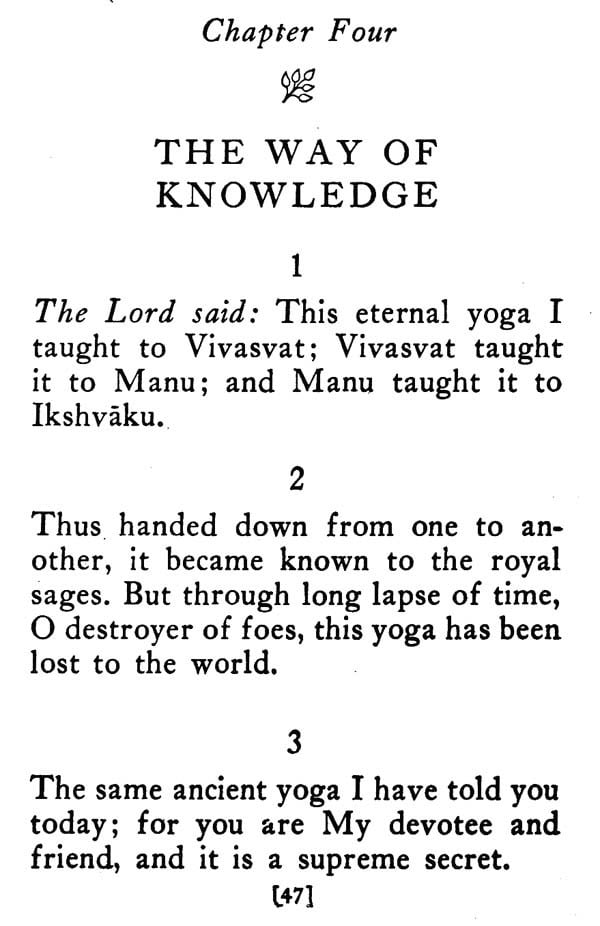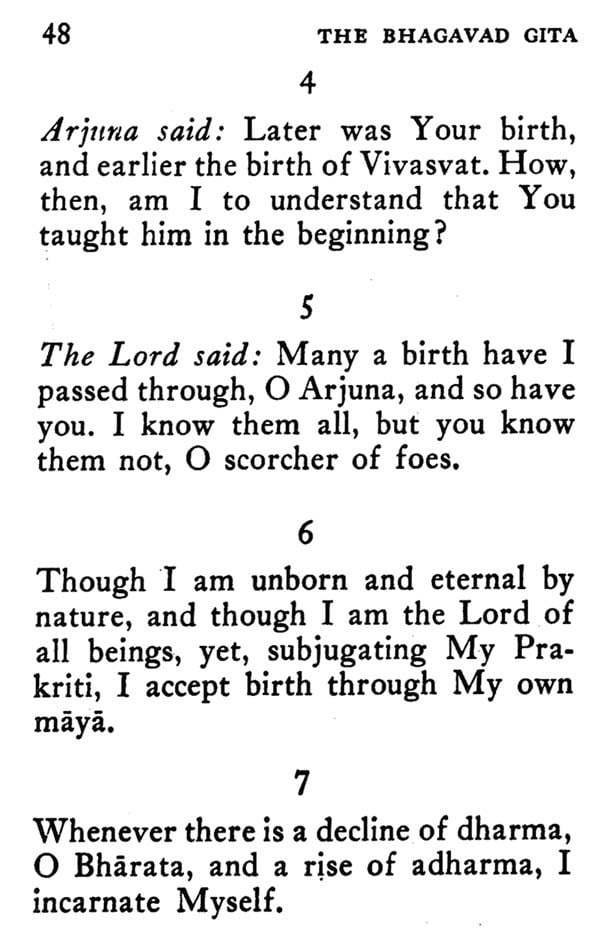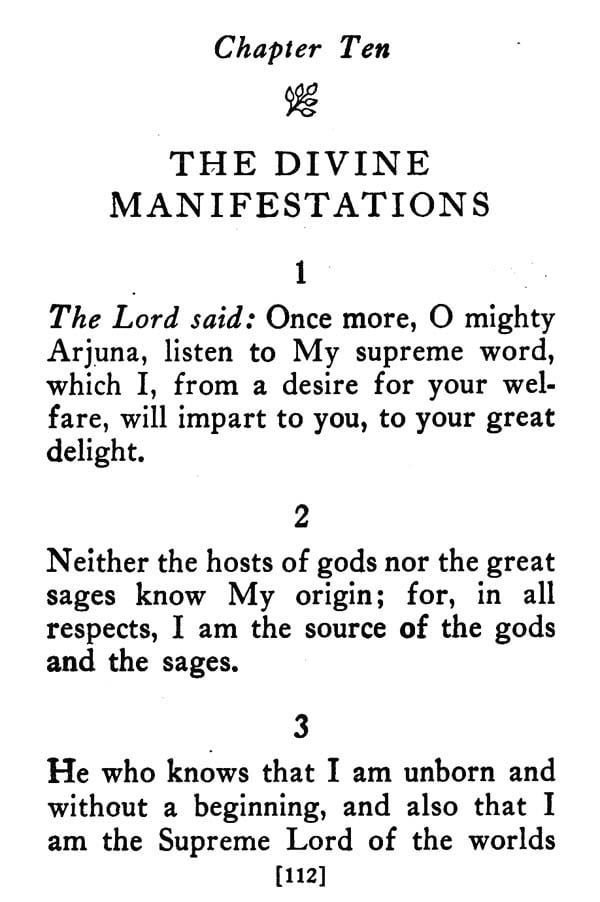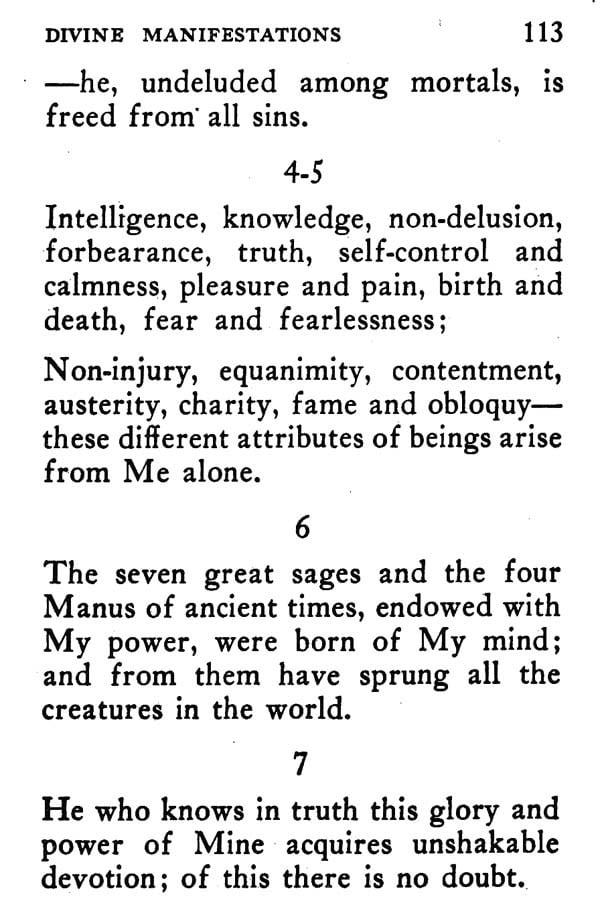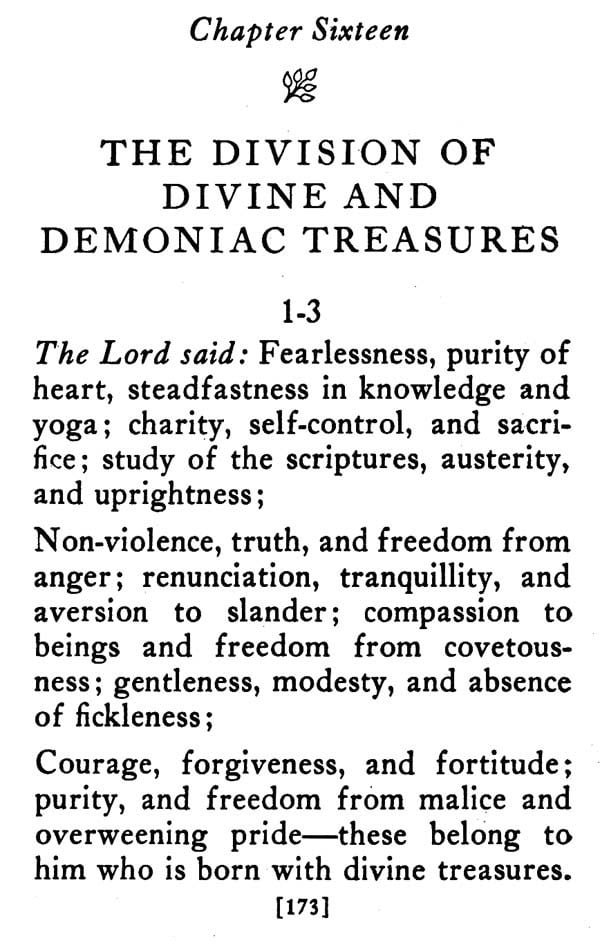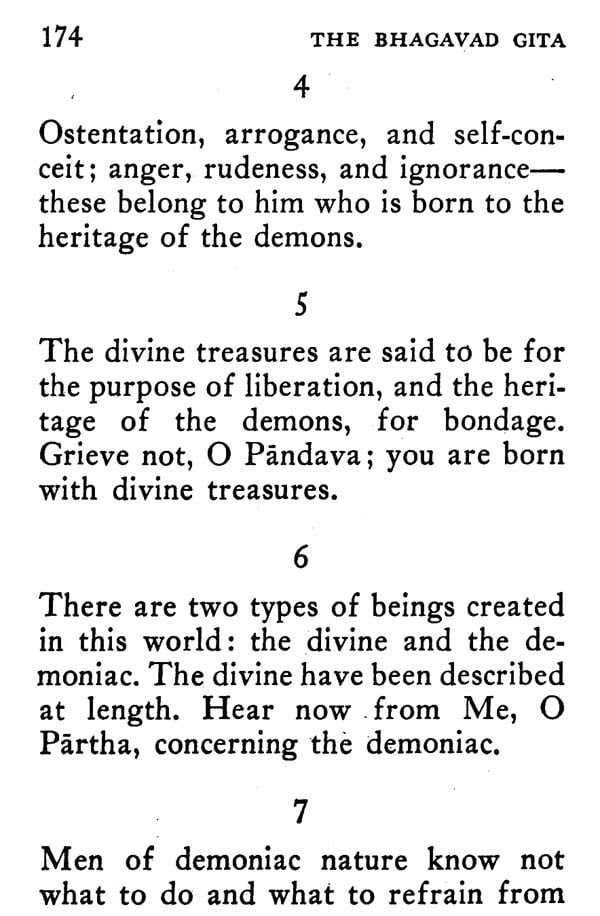
The Bhagavad Gita
Book Specification
| Item Code: | NCZ132 |
| Author: | Swami Nikhilananda |
| Publisher: | ADVAITA ASHRAM KOLKATA |
| Language: | English |
| Edition: | 2019 |
| ISBN: | 9788175053069 |
| Pages: | 252 |
| Cover: | PAPERBACK |
| Other Details | 6.50 X 4.00 inches |
| Weight | 140 gm |
Book Description
Among the sacred books of India the Bhagavad Gita occupies a very high place. The study of the Gita, the Upanishads, and the Brahma-sutras, with their commentaries, is a discipline for orthodox Hindu sannyasis of the Vedantist school. Hindus of all de-nominations-householders and sannyasis, men and women, young and old-derive spiritual inspiration from its study. A wandering monk, who has given up all earthly possessions, often carries a pocket edition of the Gita. It is an excellent manual of Hinduism. The teachings of the Gita are presented in the form of a dialogue between Sri Krishna and Arjuna. The background of a battle-field imparts a dramatic charm. Sri Krishna, the teacher, is regarded by the Hindus as the Lord Himself in a human form. A student absorbed in the book often forgets its historical character and feels as though many of its inspiring pas-sages are directly addressed to himself by the Lord, who is the Inner Guide of all. The suggestiveness of the book is almost without limit if it is read with the right attitude of mind. Many of the passages, written in aphoristic form, can be memorized and recalled at the time of meditation or in those moments of life when spiritual inspiration is required. There are many who regard the story behind the Gita not as historical fact but as an allegory. To them Arjuna represents the individual soul, and Sri Krishna the Supreme Soul dwelling in every heart.
Arjuna's chariot is the body. The blind King Dhritarashtra is the mind under the spell of ignorance, and his hundred sons are man's numerous evil tendencies. The battle, a perennial one, is ever going on between the power of good and the power of evil. The warrior who listens to the advice of the Lord speaking from within will triumph in this battle and attain the Highest Good. The Hindu philosophers have never been satisfied with the mere intellectual understanding of a 'religious treatise. Scripture is simply a key to the infinite storehouse of knowledge that lies within every human soul.
The purpose of philosophy, dariana, is to en-able its student to see the Truth, that is, to realize It in direct experience. Hence certain moral and spiritual disciplines are necessary in order to create the right mood for study of the scriptures. Hinduism lays down four such disciplines, namely, discrimination between the Real and the unreal; renunciation of the unreal; the acquisition of six virtues: control of the mind, control of the senses, forbearance, re-straining the mind from being distracted by worldly objects, faith in the words of the teacher and the scriptures, and concentration; and lastly, the longing for liberation.
The Bhagavad Gita, called the Gita for short, contains seven hundred verses and forms eighteen chapters of the Mahabharata, the twenty-fifth through the forty-second, in the section on Bhishma. The main theme of the Mahabharata is the exploits of two families of royal cousins, known as the Pandavas and the Kauravas, who were the sons of two brothers, Pandu and Dhritarashtra, respectively. Since Dhritarashtra was born blind, Pandu inherited the ancestral kingdom, comprising a part of northern India around modern Delhi. The Pandava brothers, five in number, were called Yudhishthira, Bhima, Arjuna, Nakula, and Sahadeva. The Kaurava brothers were one hundred in number, Duryodhana being the eldest. When Pandu died at an early age, his young children were placed under the paternal care of their uncle, Dhritarashtra. The Pandavas and the Kauravas grew up together and were given an education suitable to their rank and position. Bhishma, the wise grandsire, acted as their chief guardian, and the brahmin Drona was their military instructor. As the princes attained adolescence their latent qualities be-came manifest.
The five sons of Pandu were endowed with righteousness, self-control, nobility, and many other knightly traits. Yudhishthira, in particular, was truthful, benevolent, for-bearing, and gentle. On the other hand, the hundred sons of Dhritarashtra, especially Duryodhana, developed al-together different natures. They were cruel, unrighteous, unscrupulous, greedy, and lustful. Even from his boy-hood Duryodhana had been jealous of his five cousins and contrived various means to destroy them. And the old king, in spite of his sincere efforts to maintain an impartial attitude toward his nephews: often yielded to his son's wishes and connived at his mean devices for the ruin of Yudhishthira and his brothers. Soon Yudhishthira was proclaimed heir apparent to the throne, to the great jubilation of the subjects. This only served to inflame the jealousy of the wicked Duryodhana, who was on the lookout to destroy his cousins.
The wise ministers advised the blind king to divide the ancestral kingdom between the two families in order to re-move all cause of friction. The Pandava brothers were content with their share, and Yudhishthira assumed the rulership of his territory. But hardly had they settled themselves in their new capital when Duryodhana, through a diabolical device, exiled the five brothers and their wife into the forest.
**Content and Sample Pages**
